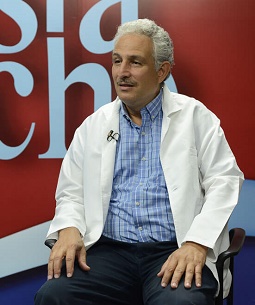Also available in: Español
Source: Corresponsales Clave
There is concern in the health sector of Nicaragua due to the increase of malaria cases, especially among Miskita and Afro-descendants populations of the Caribbean coast in the country.
By: Harvin J. Melendez
Nicaragua set out to eradicate malaria – by 2020, as it was assured by some epidemiologists in that country such as Jeronimo Juarez, Coordinator of the Vectors Control Program of the Local Comprehensive Health Care System (SILAIS – León), who said to Corresponsales Clave that “Nicaragua is one of the countries within the whole region that has more than 75% reduction of malaria and it is one of the countries that has the perspective to achieve the certification as a malaria vector free country¨. However, the latest statistics presented by the World Health Organization (WHO) show that in Nicaragua there is an increasing trend of people affected by this disease. In 2015 the estimated number of malaria cases was 4,600 against 1,400 cases in 2010.
Caribbean Coast with more impact
Climate conditions in the Caribbean coast foster more natural breeding grounds for mosquitoes; the area is rather humid with rainfall most of the time. In this environment, there are more cases of people affected by malaria. In addition, as several officials from MINSA point out there is a significant distance between the health centers and the affected population.
The epidemiologist Leonel Argüello explained to the national media in december that “it is in the Caribbean where there are more cases, especially in the northern Caribbean where we have more issues with malaria, because of late diagnosis or people not going to health units, taking into account the own culture of the indigenous population and the weather conditions.¨
According to some civil society organizations in the region, there is resistance from the population to take seriously the plans managed by the Ministry of Health in the area. One of the main factors is the accessibility to health services and the lack of cultural relevance of the programs of the Ministry of Health in the area. Tininiska Rivera Castellon, in charge of Planning at the Municipality of Puerto Cabeza of the Autonomus Region of the North Atlantic (RAAN) said to Corresponsales Clave that “people do not have access to health services and they look for witch-doctors that use traditional medicine to cure some diseases; we even see in the urban area that there is shortage of medications and in the rural area this is even worse, people really do not know if their fever is due to a virus, to malaria or to any other disease. In the communities people do not have access to diagnostic tests for diseases and that is why some people die of malaria and the MINSA does not keep records of these cases¨.
Castellon also talked about an unequal distribution of some benefits provided by the health centers in the region. He states that this institution was delivering mosquito nets to the population in the area, but the benefit was earned by some people close to the workers of MINSA and others from the government party. Castellon stated that “There are people that really need to be provided with these goods, because they live in precarious conditions, at the banks of the rivers in the area¨.
Nicaragua wants to eradicate malaria

Leonel Argüello, epidemiologist, stated very clearly that the area of the northern Caribbean is the most affected one.
Jeronimo Juarez and Leonel Argüello agree that Nicaragua will eradicate Malaria by 2020, however the disease is silently spreading, as it was shown by the WHO in its latest report released on December 2016 which was published by the local media. Health authorities keep saying that in the Caribbean Coast a comprehensive plan is developed for the purpose of destroying the vector´s breeding grounds and reducing the number of malaria cases.
Although there is little official information from the Ministry of Health regarding the records of new cases and programs that are implemented in the country, the citizens of the Caribbean region are complaining about the lack of programs to counter the increase of new cases, at least in the Caribbean coast, where new malaria cases are identified.
The last project approved by the Global Fund to consolidate the progress in the response to malaria en Nicaragua, states that in 2018, it would be expected that the next reports would show a reduction in malaria cases.
All the articles may be shared and published as long as the source data is quoted.

